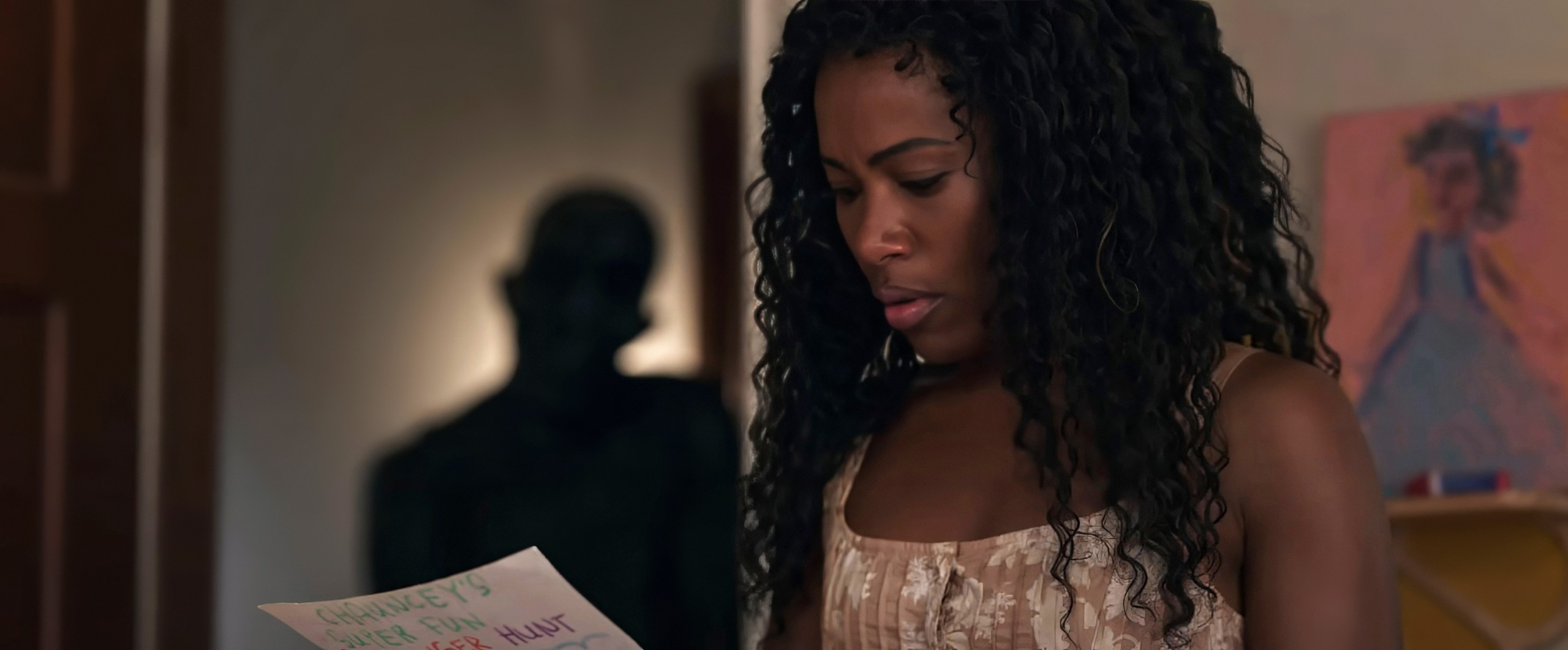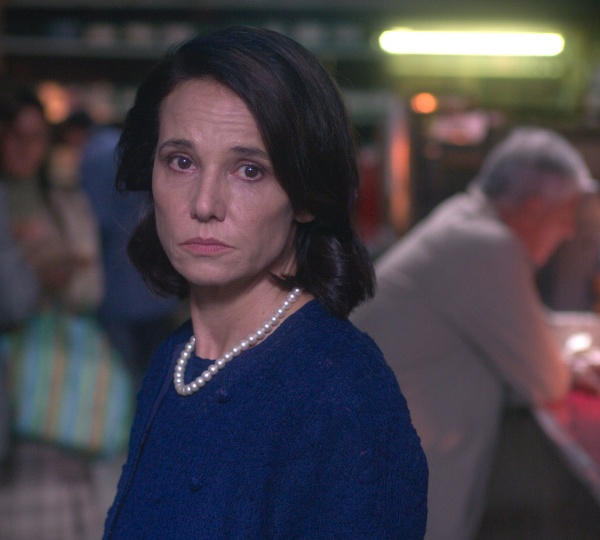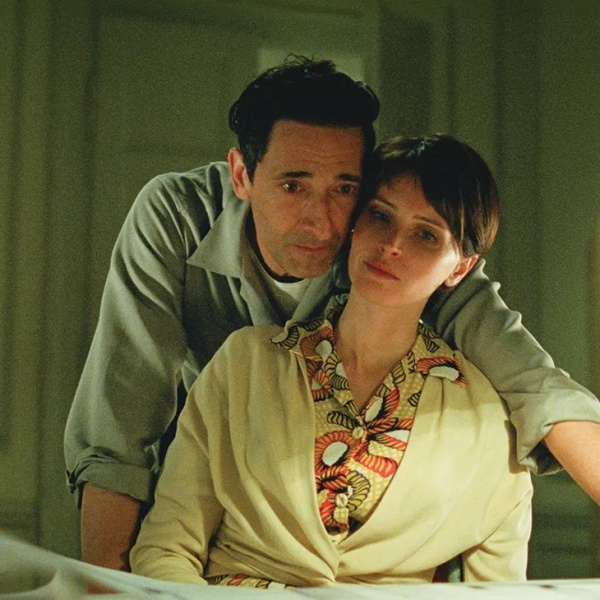About halfway through Blumhouse’s “Imaginary,” stoner teen Liam (Matthew Sato) (somehow) needs the concept of an imaginary friend explained to him after coming face to face with Chauncey, the teddy bear bestie of young, innocent Alice (Pyper Braun). Rather than give a real explanation, Alice’s surly older sister Taylor (Taegen Burns) simply tells her neighbor “Like Bing Bong. You know, from ‘Inside Out’?” It’s a cheap reference that, depending on the audience member who sees it, will either provoke a chuckle or an eye roll. But this passing reference to a much, much better movie that wrestles with the relationship we have with figments of our imagination only highlights that “Imaginary” doesn’t have much imagination of its own.
“Imaginary” comes from director Jeff Wadlow, who wrote the script with Greg Erb and Jason Oremland. Wadlow is a veteran of Blumhouse at this point, but none of the films he’s made for the company — including 2018’s “Truth or Dare” and 2020’s execrable “Fantasy Island” reboot — have been particularly successful, and “Imaginary” is an improvement in the sense that it achieves mediocrity and baseline competence. There are interesting ideas in this tale of an imaginary friend with a mind of its own and a dangerous sadistic streak, but “Imaginary” doesn’t do much with them; it’s instead content to plod along like the outline of a script and take cues from other Blumhouse films rather than think up original ideas for itself.
The problem starts with the core cast of characters, which resembles countless other fraught family dynamics in hundreds of horror films. DeWanda Wise is our hero Jessica, a children’s book writer and artist whose chief creation is Simon the Spider, a cartoon monster inspired by recurring nightmares in which she’s chased in her childhood home by a vicious arachnid demon. Despite those bad omens and other assorted trauma revolving around the suburban dream home — she moved there to live with her grandmother after her mother died, and quickly moved out when she was five after her father seemingly snapped mentally — she’s rather eager to move back in with her husband Max (Tom Payne, sharing an almost comical lack of chemistry with Wise), describing the house as her “happy place.”
The couple have barely settled into the spacious residence when Max, who is vaguely a musician of some kind, heads out on a vague tour, leaving Jessica with Alice and Taylor, his two daughters from a prior relationship. As Jessica struggles to connect with the girls — particularly Taylor who, like all cinematic stepdaughters, practically rolls her eyes at every word that comes out of her new stepmom’s mouth — Alice, often left to play with herself, stumbles upon ancient teddy bear Chauncey in a strange hidden area of the house’s basement. She takes to Chauncey like a fly, towing him around the house constantly, which a delighted Jessica initially encourages — until Alice’s conversations with the bear take on a strange and extremely dark tenor.

Tonally, “Imaginary” feels like an attempt to chase the campy, self-aware, more funny than scary spirit of Blumhouse’s 2023 robot doll phenomenon “M3GAN.” For much of the running time, it struggles to find the balance and clarity in writing needed to make the style work, and the film instead mostly meanders through a solid hour of bloodless buildup spent investing in its largely braindead characters. The dynamics between Jessica and her stepdaughters are tired and exhausting clichés, and some backstory involving the girls’ mentally ill biological mother aside, there’s no attempt to flesh it out beyond the barest of bones.
It doesn’t help that every performer in the film, with the slight exception of Betty Buckley as a kooky old neighbor, comes off awkward and slightly listless onscreen, a problem so universal it suggests serious directing problems. That said, it’d be hard for anybody to naturally deliver clumsy, overly expositional dialogue like, “My grandma, who I moved in with after my mom died” or “I know Alice is missing, but this is about Jessica and when she went missing as a child.”
On paper, the film at least has an interesting villain to invest in. Although it’s obvious from the premise that Chauncey is evil, the film keeps him silent and nearly motionless for a long stretch; we only hear Alice talking to him during their conversations, and learn about his motives through Alice’s relaying of his unheard voice. But Wadlow also doesn’t seem confident enough in this minimalistic setup as an avenue for slow-burn horror, because the filmmaker keeps throwing garish and unimaginative CGI monsters onscreen — as in the opening, or a quick and otherwise decently creepy scene in which Liam gets harassed by Chauncey — that look more awkward than terrifying.
After wasting most of its running time on tedium, “Imaginary” does get a lot better in its back half, thanks to an enjoyably dumb twist and a third act that more confidently reaches for campy fun instead of horror. The script doesn’t quite get original — without spoilers, the plot takes a turn that can best be described as extremely “Coraline”-esque — but the closing sequence does a little more to set itself apart from your average P-13 Blumhouse film.
Still, the movie’s foundational issues never subside; in its closing minutes, “Imaginary” tries half-heartedly to grapple with themes of the dangers of wish fulfillment and how the things we imagine reflect our desires and fears. None of this makes much of an impact given how poorly sketched the characters are, and how little there is to distinguish the film from hundreds of other horror movies that come out every year. Even at its most entertaining, “Imaginary” has about as much staying power as the figments of imagination that give it its name. Just like your childhood imaginary friend, you’ll probably forget about it pretty quickly.
Grade: C
Lionsgate will release “Imaginary” in theaters on Friday, March 8.





